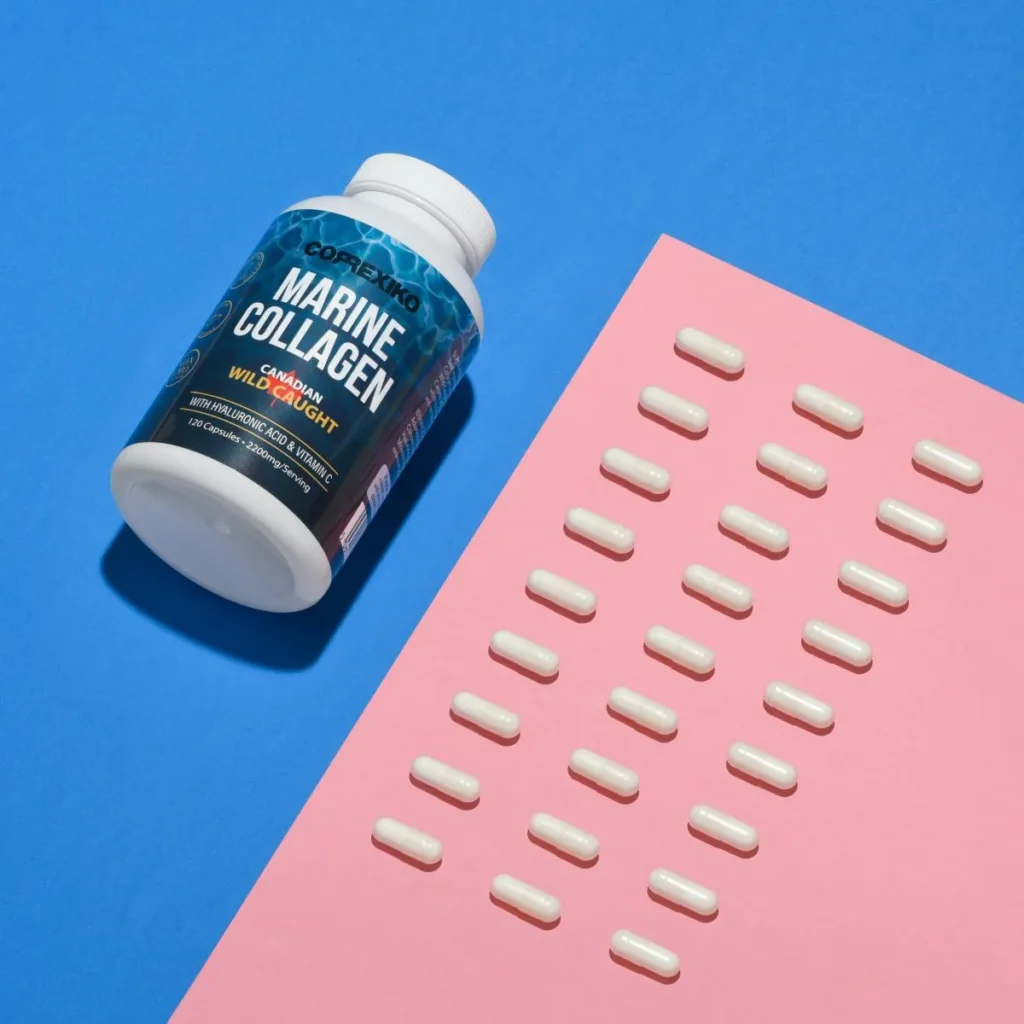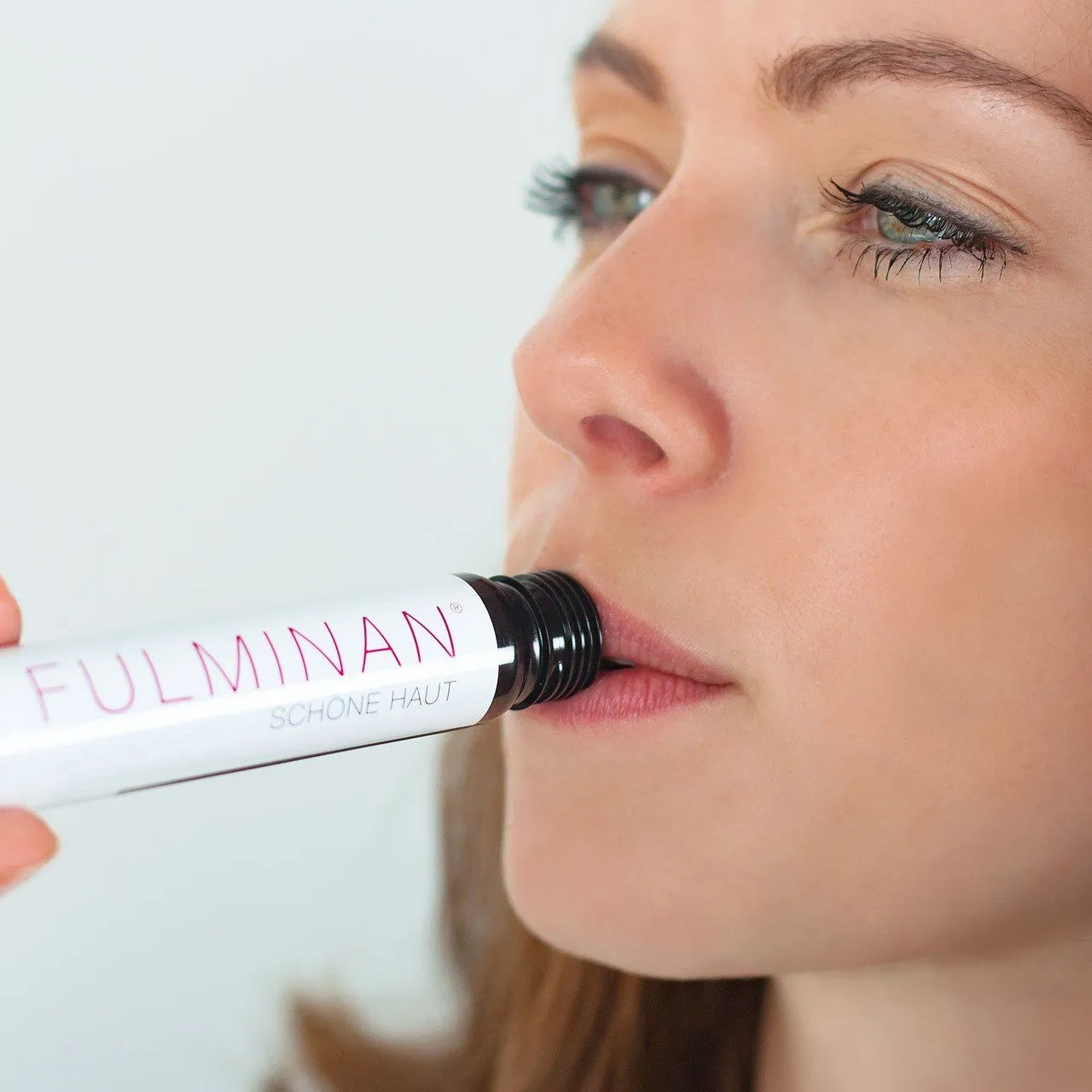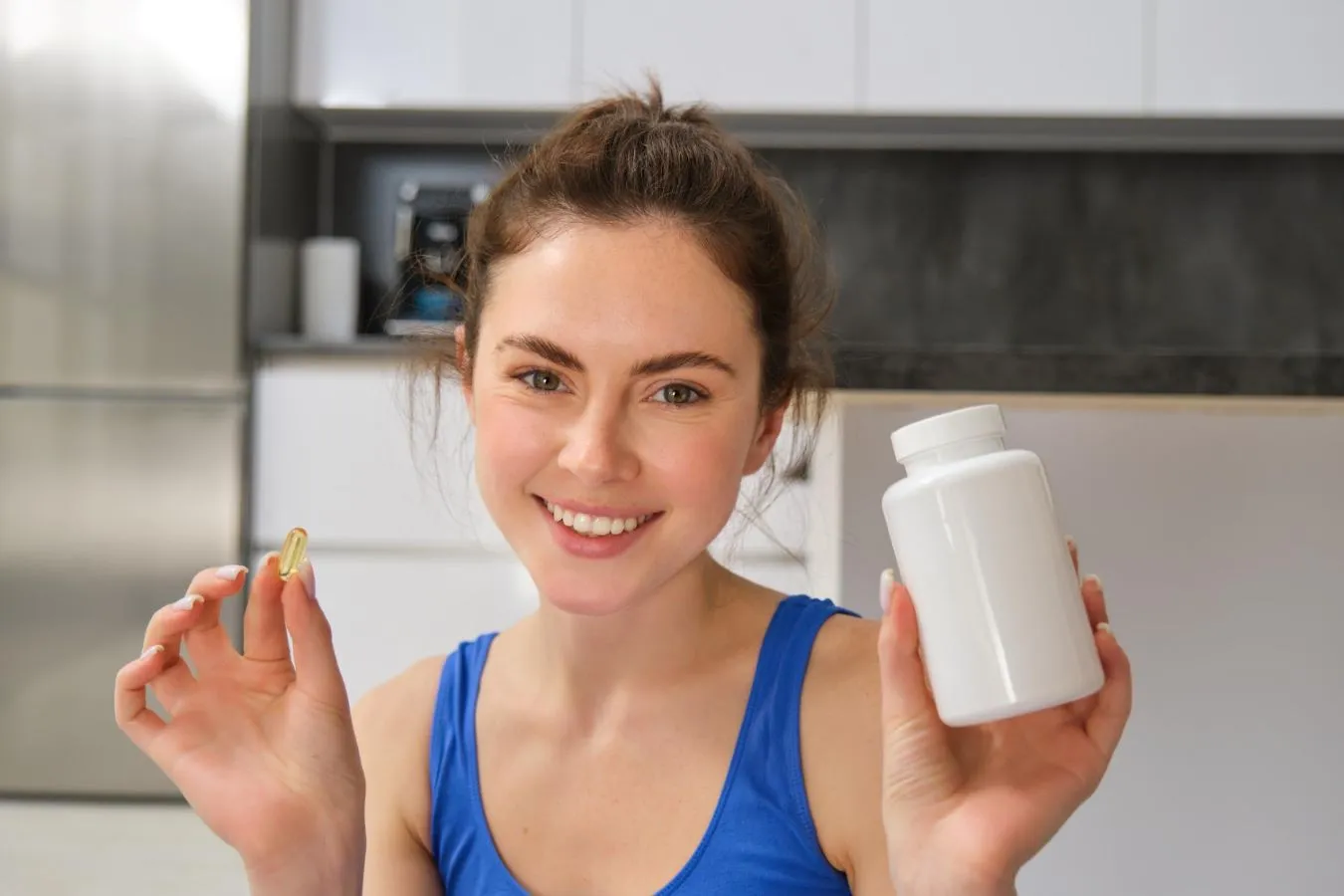The Importance of Collagen in the Body
In this study, I will tell you about a very important nutrient that if the body is deficient, it cannot be made into collagen. And this is not vitamin C. Earlier we talked about vitamin C. Vitamin C also helps in collagen manufacturing, but this is different. Now, what is Collagen? Collagen is a protein that connects tissues, 35% of the total protein of the body is Collagen. It forms the connective tissues. It forms the cartilage, Muscles, tendons, and ligaments. The eyes are formed by Collagen. The fascia is formed by Collagen. The connective tissue that holds the muscles together. The body organs remain in place because of the fascia. They don’t move. It is necessary to maintain the structure and posture of the body. Collagen, often hailed as the body’s “building blocks,” is a crucial protein found abundantly throughout the human body.
Collagen: The Building Block of Bones and Teeth
Then the bones and Teeth are also made of collagen. This means that this protein is present everywhere in the body. I think that many people eat collagen supplements to increase collagen. Whereas in reality, they are missing a very important thing. Its body has a direct effect on collagen production.
The Hidden Key to Collagen Production: Copper
If you want to increase your collagen, then the most important thing without which collagen cannot be made is copper. Copper prevents collagen loss. Copper makes elastin. This is the protein that works with collagen and prevents tissue breakage when there is mechanical stress on tissues. So it supports them. copper is a trace mineral, which means it is needed in a very small amount. It controls the action of those enzymes, from which collagen and some other proteins are made.
The Consequences of Copper Deficiency: Weakness from Within
If there is a lack of copper in the body, then many problems can arise. On the first number are loose skin, sagging, cellulite,joint pain, osteoarthritis, weak bones due to which the risk of fractures and osteoporosis increases, varicose veins, vascular problems due to which blood vessels become loose, elasticity is lost due to lack of collagen, muscles become weak, overall muscle strength and function are affected, weakness, fatigue, physical endurance decreases,
Copper: A Shield Against UV Rays and Tissue Weakness
There are many other benefits of copper. It increases sunlight tolerance. It makes an enzyme called Lysyl Oxidase. This enzyme is present in the skin. It protects the skin from UV radiation. Copper makes Melanin. Melanin absorbs UV radiation. So that you can live in sunlight without damaging the skin for a long time. It helps in hernia. This study was done on people who had a hernia, all types of hernia, inguinal, and hiatal. In all of these people, copper deficiency was also seen. If you pick up any heavy thing, even if you have a cough, it hurts. Connective tissues become a victim of wear and tear. So in this, basically tissues lose their structural integrity. They started losing their structure and in all of these people, the lack of copper was noted.
Copper’s Role Beyond Collagen
Copper is good for hydration. It does not allow water deficiency, especially in athletes. They can perform without water for a long time. So now you see muscles, connective tissues, joints, blood vessels, and even lower back discs need copper. All these things connect copper to collagen. Another important point, if you are suffering from iron deficiency or anemia, It is very good for the immune system. Copper is involved in the production of melanin. It was mentioned at the back as well. Melanin is a skin pigment. Even the color of the hair is due to melanin.
Effects of Copper Deficiency
So in copper deficiency, premature greying of hair starts before time, the hair starts to turn white. Copper supports the brain. It keeps the body’s balance stable. If you close your eyes and you get dizzy or your body’s balance gets disturbed, then it can be a copper deficiency. An example of this is if you are taking off your shirt to take a bath, and there is a moment of a microsecond in which there is darkness in front of your eyes, then you close your eyes. If you get dizzy, then it can be a copper deficiency. Copper controls uric acid. Copper fluoride is involved in detoxification. And fluoride comes from drinking water. And the more fluoride there is in the body, the lower the copper level.
Foods Rich in Copper
Now let’s talk about the foods that contain copper. It contains liver, beef liver, chicken liver, seafood, especially shrimp, mushrooms, sesame seed, sweet potato, spinach, and another vegetable-, cashews, and almonds. Copper is present in all of these.
Factors Leading to Copper Deficiency
Why is there a lack of copper? The main reason for this is that copper levels have decreased in the soil. The plants that grow on this soil are eaten by animals and the meat of these animals is eaten by humans. So there is no copper in the food and this deficiency comes in the human body. Then if someone has undergone a gastric bypass surgery, even after this surgery, copper deficiency has been seen. If someone is eating a lot of vitamin C, especially ascorbic acid, which is a part of the vitamin C complex, then there can be a lack of copper. Another common reason is that zinc supplements.
Recommendations to Prevent Copper Deficiency
That’s why it is always recommend that they have a complex formula. Zinc, copper, and other trace minerals have a complex formula. Because the balance of all these ratios is important. If one is more, it will reduce the other. Nowadays, zinc supplements are in trend, using more zinc is one of the reasons for copper deficiency. Using more sugar is one of the reasons for the lack of copper. And this might surprise you that using more fiber can also be one of the reasons for the lack of copper. Especially in vegetarians, Fiber intake is high. Animal protein is not present in food at all. Keep fiber as a part of a balanced diet. You don’t need to take it extra. So these are my recommendations.
Types of collagen:
Collagen supplements typically contain collagen peptides or hydrolyzed collagen, which are broken down into smaller, more easily absorbed peptides. Look for supplements that contain collagen types I and III, which are most abundant in the skin, bones, and connective tissues.
Type I collagen:
- Type I collagen provides tensile strength and tissue resilience, contributing to their elasticity and firmness. Type I collagen is the most abundant collagen type in the human body, constituting approximately 90% of total collagen. It forms the structural framework of skin, bones, tendons, ligaments, and organs.
II Collagen:
- Type II collagen is predominantly found in cartilage, providing cushioning and joint support. It helps maintain joint health and flexibility, which is crucial in preventing cartilage degeneration and joint-related disorders like osteoarthritis.
Type III collagen:
- Type III collagen is commonly found in the skin, blood vessels, and internal organs. It contributes to the elasticity and suppleness of the skin and supports the structure of blood vessels and vital organs.
Other Types:
Beyond Type I, II, and III, there are additional collagen types, each with specific functions in different tissues and organs, including Type IV, V, and X collagen.
What exactly does collagen do for you?
Collagen is a type of protein found abundantly in animals, including humans. It plays a vital role in the body by providing structure to the skin, bones, cartilage, and muscles. This helps tissues to be more flexible and resilient, keeping the skin youthful and firm.
Structural Support:
Collagen serves as the primary structural protein in various tissues throughout the body, including skin, bones, muscles, tendons, ligaments, and organs. It forms a strong, flexible matrix that provides structural support and helps maintain the integrity and shape of these tissues.
Skin Health
Collagen is essential for skin elasticity, hydration, and firmness. It forms the foundation of the skin’s structure, providing support and resilience against environmental stressors, such as UV radiation and pollution. Collagen synthesis declines with age, leading to the development of wrinkles, sagging skin, and loss of elasticity.
Joint Function:
In joints, collagen is a crucial component of cartilage, the tissue that cushions and protects the ends of bones. Collagen helps maintain joint flexibility, mobility, and resilience by preserving cartilage integrity and lubricating the joint surfaces. It also plays a role in reducing friction and preventing joint stiffness and pain.
Hair and Nail Health:
Collagen, as detailed in the Comprehensive Guide to Collagen, provides essential nutrients for hair follicles and nail beds, promoting hair growth, strength, and thickness. It improves hair texture and reduces brittleness, preventing split ends and breakage. Collagen also contributes to the formation of strong, healthy nails, enhancing their growth and appearance naturally.
Bone Strength
Collagen is a key component of bone tissue, contributing to its strength, density, and flexibility. It forms the framework upon which minerals like calcium and phosphorus are deposited, helping to maintain bone structure and integrity. Adequate collagen levels are essential for bone health and preventing conditions like osteoporosis and fractures.
Gut Health:
Collagen plays a role in maintaining gut integrity and digestive function. It helps support the structure of the intestinal lining, preventing leaky gut syndrome and enhancing nutrient absorption. Collagen peptides may also have protective effects on the digestive tract, promoting gut health and reducing inflammation.
What food is rich in collagen?
Several foods are rich in collagen or contain nutrients that support collagen production in the body. Here are some examples:
Bone Broth:
Bone broth is one of the most concentrated sources of collagen. It is made by simmering animal bones (such as chicken, beef, or fish) for an extended period, typically with vegetables and herbs. As the bones simmer, collagen and other beneficial compounds are extracted, resulting in a nutrient-rich broth that supports skin, joint, and gut health.
Chicken skin and pork skin:
Chicken skin and pork skin are rich sources of collagen. When cooked, these parts of the animal release collagen and gelatin, which can be beneficial for skin health and elasticity.
Fish
Fish, especially varieties like salmon, mackerel, and tuna, contain collagen in their skin and bones. Consuming fish with the skin and eating small, soft bones (such as those found in canned salmon) can provide a source of collagen peptides and minerals that support collagen synthesis.
Egg Whites:
Egg whites contain proline, an amino acid that is a building block of collagen. Incorporating eggs into your diet can help provide the essential amino acids needed for collagen production in the body.
Gelatin
Gelatin is derived from collagen-rich animal tissues, such as bones, skin, and connective tissues. It can be found in various forms, including powdered gelatin or as an ingredient in desserts, gummies, and gelatin-based snacks.
Bone-In Meat
Consuming meats with bones, such as chicken thighs or beef ribs, provides a source of collagen. Slow-cooking or stewing these meats allows collagen to break down into gelatin, which adds flavor and nutrients to dishes
Shellfish
Shellfish like shrimp, lobster, and crab contain compounds like chondroitin sulfate and glucosamine, which support joint health and collagen synthesis. Including shellfish in your diet can help promote healthy skin, joints, and connective tissues.
Berries and Citrus Fruits
Berries and citrus fruits are rich in vitamin C, which is essential for collagen synthesis. Vitamin C helps convert proline and lysine into hydroxyproline and hydroxylysine, key amino acids needed for collagen production in the body.
Leafy Greens:
Leafy greens like spinach, kale, and Swiss chard provide antioxidants and vitamins that support collagen synthesis and skin health. These vegetables are rich in vitamin A, vitamin C, and other nutrients that promote collagen production and protect against oxidative stress.
Incorporating collagen-rich foods into your diet, along with foods that support collagen synthesis, can help maintain healthy skin, joints, and connective tissues. Combining these foods with a balanced diet and lifestyle can support overall health and well-being.

What is collagen made of?
Collagen is a fibrous protein made up of amino acids, which are the building blocks of proteins. The primary amino acids found in collagen are glycine, proline, hydroxyproline, and arginine, although other amino acids are also present in smaller quantities.
- Glycine: Glycine is the most abundant amino acid in collagen, comprising about one-third of its total amino acid composition. It plays a crucial role in forming collagen’s triple helix structure and providing stability to the protein.
- Proline: Proline is another essential amino acid found in collagen. It helps stabilize the structure of collagen molecules by forming cross-links between individual chains, contributing to the overall strength and integrity of collagen fibers.
- Hydroxyproline: Hydroxyproline is derived from proline through a post-translational modification process that occurs during collagen synthesis. It plays a key role in collagen stability and is essential for the formation of collagen’s triple helix structure.
- Arginine: Arginine is involved in collagen synthesis and is necessary for the production of collagen molecules. It also plays a role in regulating blood flow and promoting wound healing.
These amino acids, as elucidated in the Comprehensive Guide to Collagen, are arranged in a unique triple helix structure, which gives collagen its strength, flexibility, and resilience. Its molecules consist of three polypeptide chains, each containing repeating sequences of amino acids. The triple helix structure allows collagen to withstand tensile forces and provide structural support to various tissues throughout the body.
What does collagen do to the face?
Collagen plays a significant role in maintaining the health and appearance of the face. Here’s what collagen does for the face:
Skin Elasticity
Collagen, as outlined in the Comprehensive Guide to Collagen, is a key component of the skin’s structural framework, providing strength, resilience, and elasticity. It helps the skin maintain its firmness and suppleness, contributing to a youthful appearance. Collagen fibers form a supportive network that keeps the skin smooth and tight, reducing the appearance of fine lines, wrinkles, and sagging naturally.
Hydration:
Collagen helps retain moisture in the skin, promoting hydration and preventing dryness. Adequately hydrated skin appears plump, soft, and radiant. Collagen molecules can bind with water molecules, helping to maintain the skin’s natural moisture balance and barrier function.
Wrinkle Reduction:
As we age, collagen production naturally declines, leading to the formation of wrinkles, creases, and lines on the face. Collagen supplementation or topical treatments can help reduce the appearance of wrinkles by restoring collagen levels and improving skin elasticity. This can result in smoother, firmer skin with fewer visible signs of aging.
Skin Texture
Collagen promotes a smooth and even skin texture by supporting cell turnover and regeneration. It helps repair damaged skin tissues, minimize scars, and improve overall skin tone and clarity. Collagen-rich skin appears more vibrant, youthful, and healthy.
Wound Healing
Collagen plays a crucial role in the skin’s healing process following injury or trauma. It helps form new connective tissue, repair damaged skin cells, and promote tissue regeneration. Collagen-based wound dressings and skin care products can accelerate healing and reduce scarring by supporting the body’s natural repair mechanisms.
Protection from Environmental Damage
Collagen helps protect the skin from environmental stressors, such as UV radiation, pollution, and free radicals. It strengthens the skin’s natural barrier function, reducing the risk of damage and premature aging caused by external factors. Collagen-rich skin is better equipped to withstand environmental challenges and maintain its health and vitality.
best collagen supplements
Determining the “best” collagen supplement is contingent upon individual preferences, dietary needs, and health goals, as detailed in the Comprehensive Guide to Collagen. However, several high-quality collagen supplements are available on the market, each offering unique formulations and benefits. Here are some factors to consider when choosing a collagen supplement and some popular options:
Source:
Collagen supplements can be derived from various sources, including bovine (cow), marine (fish), porcine, or poultry (chicken). Choose a supplement from a reputable manufacturer that sources collagen from sustainable and ethically raised animals.

Purity and Quality:
Opt for collagen supplements that undergo rigorous testing for purity, quality, and safety. Look for certifications from third-party organizations, such as NSF International or the United States Pharmacopeia (USP), which verify the authenticity and potency of the ingredients.
Absorption and Bioavailability
When choosing collagen supplements, refer to the Comprehensive Guide to Collagen recommendations. It’s advisable to select collagen supplements that feature optimized forms of collagen peptides with high bioavailability. These peptides undergo breakdown into smaller molecules that are easily absorbed by the body, ensuring maximum effectiveness in supporting your health and wellness goals.
Additional Ingredients:
Some collagen supplements may contain additional ingredients like vitamin C, hyaluronic acid, or antioxidants, which support collagen synthesis, skin health, and overall well-being. Consider supplements that offer complementary nutrients for enhanced benefits.
Formulation:
Collagen supplements, as discussed in the Comprehensive Guide to Collagen, are available in various forms, including powders, capsules, liquids, and chewable gummies. Choose a formulation that fits your lifestyle and preferences, making it convenient to incorporate into your daily routine naturally.
Based on these criteria, here are some popular collagen supplements that are well-regarded by consumers and healthcare professionals:
Vital Proteins Collagen Peptides:
- This widely recognized brand offers collagen peptides sourced from grass-fed, pasture-raised bovine hides. The collagen peptides are flavorless and easily soluble, making them versatile for adding to beverages, smoothies, or recipes.
- Sports Research Collagen Peptides: Made from non-GMO, grass-fed bovine collagen, this supplement contains type I and type III collagen peptides. It is gluten-free, dairy-free, and paleo-friendly, with no added sugars or artificial ingredients.
- NeoCell Super Collagen Powder: NeoCell offers collagen powder derived from bovine collagen types I and III. It is hydrolyzed for maximum absorption and contains vitamin C to support collagen synthesis. The powder is unflavored and mixes easily with water or other beverages.
- Youtheory Collagen Advanced Formula Tablets: These tablets contain a blend of collagen types I, II, and III, sourced from chicken collagen and marine collagen peptides. They also include vitamin C and hyaluronic acid for added skin and joint support.
Before starting any new supplement regimen, it’s essential to consult with a healthcare professional, especially if you have any underlying health conditions or are taking medications. They can provide personalized recommendations based on your individual health needs and goals. Additionally, when choosing a collagen supplement, be mindful of potential allergens or sensitivities to specific ingredients.
Supplementation and Potential Side Effects:
Collagen supplements, available in various forms such as powders, capsules, and liquids, boost collagen intake conveniently. However, it’s essential to consider potential side effects and precautions:
- Digestive discomfort: Some individuals may experience mild digestive issues like bloating or diarrhea when taking collagen supplements.
- Allergic reactions: People with allergies to certain animal proteins should exercise caution when consuming collagen supplements derived from beef, chicken, or fish.
- Interaction with medications: Collagen supplements may interact with certain medications or medical conditions, so it’s advisable to consult a healthcare professional before starting supplementation.
Dietary Tips for Incorporating Collagen-Rich Foods:
- Enjoy homemade bone broth: Simmer bones and connective tissues with vegetables and herbs to prepare nutrient-rich bone broth.
- Include collagen-rich foods in meals: Incorporate lean meats, poultry, fish, and seafood into soups, stews, stir-fries, and salads.
- Experiment with gelatin recipes: Prepare homemade gummies, puddings, and desserts using gelatin as a natural thickening agent.
- Supplement wisely: Choose high-quality collagen supplements from reputable brands, and follow recommended dosage guidelines for optimal results.
- Maintain a balanced diet: Focus on consuming a variety of nutrient-dense foods that support collagen synthesis and overall health.

Conclusion
- Collagen is a vital protein that supports skin, joint, hair, and nail health, as well as overall well-being.
- Understanding the different types of collagen and their functions can help optimize collagen intake and address specific health concerns.
- Incorporating collagen-rich foods into daily meals and snacks, along with supplementation if necessary, can help maintain optimal collagen levels and promote long-term health.
- Prioritize a balanced diet, regular physical activity, and adequate hydration to support collagen synthesis and maximize its benefits for the body.



